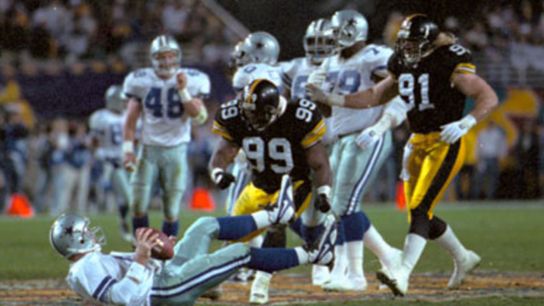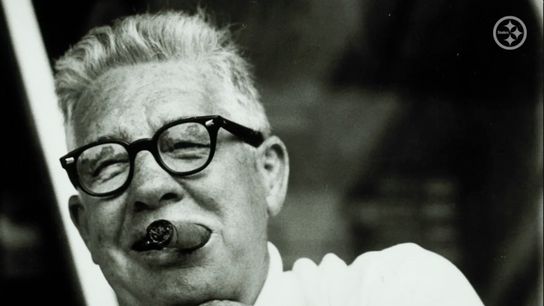Few franchises in the National Football League (NFL) boast a history as rich and storied as the Pittsburgh Steelers. From their humble beginnings to their emergence as one of the most dominant teams in professional football, the Steelers have built a legacy defined by resilience, excellence, and an unwavering commitment to success. Much like independent casino sites that thrive on strategy and innovation, the Steelers have continuously adapted and evolved to maintain their competitive edge. This deep dive into their journey highlights the milestones, key figures, and cultural impact that have solidified the Steelers as an iconic franchise.

Steelers.com
The Early Years: Foundations of a Dynasty
The Pittsburgh Steelers were founded in 1933 by Art Rooney, initially known as the Pittsburgh Pirates before adopting the Steelers name in 1940. The early years were marked by struggles, with the team failing to find consistent success. It wasn’t until the 1970s that the Steelers transformed into a powerhouse, thanks to strategic drafting and strong leadership.
The 1970s: The Steel Curtain and Super Bowl Dominance
The Steelers' golden era began in the 1970s, led by Hall of Fame coach Chuck Noll. His drafting strategy, which included selecting legendary players like Terry Bradshaw, Franco Harris, Mean Joe Greene, and Jack Lambert, built the foundation of a dynasty. The "Steel Curtain" defense became a feared force, dominating opponents and establishing Pittsburgh as the team to beat.
Between 1974 and 1979, the Steelers won four Super Bowls (IX, X, XIII, and XIV), becoming the first team in NFL history to achieve such a feat. Their defense, coupled with a potent offense, redefined excellence in football and cemented their place in history.
The 1980s and 1990s: Transition and Resilience
After their dominant run in the 1970s, the Steelers faced a transitional period in the 1980s. With the retirement of key players, the team struggled to maintain its previous success. However, the organization remained competitive under head coach Bill Cowher, who took over in 1992. Cowher’s leadership revitalized the Steelers, and in the 1995 season, they reached Super Bowl XXX, but fell to the Dallas Cowboys.

Pittsburgh Steelers
Steelers' Levon Kirkland over Cowboys Troy Aikman.
The 2000s: Return to Glory
The Steelers returned to prominence in the 2000s, with the arrival of quarterback Ben Roethlisberger in 2004 marking the start of a new era. Under head coach Bill Cowher, the Steelers won their fifth Super Bowl in the 2005 season (Super Bowl XL).
When Mike Tomlin took over as head coach in 2007, the Steelers continued their success. Under his leadership, they won Super Bowl XLIII in 2008, making them the first team to win six Super Bowls, a record at the time. Their hard-nosed, blue-collar style of play mirrored the city's working-class identity, further endearing them to fans.
The 2010s and Beyond: Sustained Success
The Steelers have remained a consistent playoff contender in recent years, continuing to develop top-tier talent while staying true to their identity. Despite fluctuating success in the postseason, the team’s commitment to winning and developing strong defensive and offensive units remains unwavering.
With a dedicated fan base known as the “Steeler Nation,” Pittsburgh remains one of the most beloved and respected franchises in the NFL. Their culture of toughness, unity, and excellence is a testament to their lasting legacy.

Getty Images
Pittsburgh Steelers fans wave their Terrible Towels aggressively as Styx famous song, Renegade plays during a home game at then-Heinz Field in Pittsburgh, PA.
Conclusion
The Pittsburgh Steelers’ journey is one of perseverance, transformation, and sustained greatness. From their struggles in the early years to their dominance in the 1970s and their continued success in the modern era, the Steelers have solidified themselves as one of the most prestigious franchises in football history. With a rich tradition and an eye on the future, the Steelers' legacy continues to inspire generations of players and fans alike.

